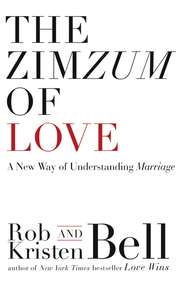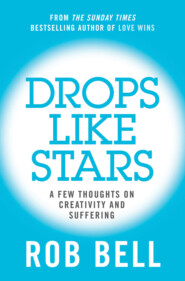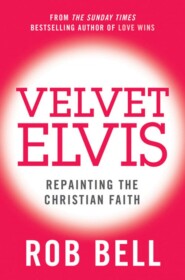По всем вопросам обращайтесь на: info@litportal.ru
(©) 2003-2024.
✖
How To Be Here
Автор
Год написания книги
2019
Настройки чтения
Размер шрифта
Высота строк
Поля
or business
or family
or mission
or class
or plan
or cause
or meeting
or task
or project
or challenge
or phone call
or life that is waiting for you to bring it into being.
An Unfinished World (#ulink_e6ca568b-19c6-51d7-ad60-381e9610ce6d)
Do you see your life as something you create?
Or do you see your life as something that is happening to you?
The blinking line raises a compelling question: What are we here for?
For many people, the world is already created.
It’s a fixed, static reality—set in place, previously established, done. Or to say it another way: finished.
Which usually leads to the question: What’s the point of any of this?
But when we’re facing the blinking line and we talk about bringing something new into existence, we’re expressing a different view of the world, one in which the world is unfinished.
There’s an ancient poem about this unfinished world we call home. In this poem there are stars and fish and earth and birds and animals and oceans, and they’re all in the endless process of becoming. It’s not just a tree, it’s a tree that produces fruit that contains seeds that will eventually grow new trees that will produce new fruit that contains more seeds to make more new trees. It’s a world exploding with life and beauty and complexity and diversity, all of it making more, becoming and evolving in such a way that tomorrow will be different from today because it’s all headed somewhere. Nothing is set in stone or static here; the whole thing is in motion, flush with vitality and pulsing with creative energy. (This poem, by the way, is the first chapter of the Bible (#litres_trial_promo), in case any of this is starting to sound familiar.)
And then, right there in the middle of all of this unfinished creation, the poet tells us about a man and a woman. The man’s name is Adam, which means The Human in the original Hebrew language. It’s not a common name like you and I have, it’s more like a generic description. Same with the woman, whose name is Eve, which means Source of Life or Mother of the Living.
They find themselves in the midst of this big, beautiful, exotic, heartbreaking, mysterious, endlessly becoming, unfinished world and they’re essentially told,
Do something with it!
Make something!
Take it somewhere!
Enjoy it!
The poet wants us to know that God is looking for partners, people to help co-create the world. To turn this story into a debate about whether or not Adam and Eve were real people or to read this poem as a science textbook is to miss the provocative, pointed, loaded questions that the poem asks:
What will Adam and Eve do with this extraordinary opportunity?
What kind of world will they help make?
Where will they take it?
What will they do with all this creative power they’ve been given?
It’s a poem about them, but it asks questions about all of us:
What will we make of our lives?
What will we do with our energies?
What kind of world will we create?
Which leads to the penetrating question for every one of us—including you:
What will you do with your blinking line?
Ex Nihilo-ness (#ulink_776b7a5f-98ec-5601-adf7-66710ff8f9dd)
You create your life.
You get to shape it, form it, steer it, make it into something. And you have way more power to do this than you realize.
What you do with your life is fundamentally creative work. The kind of life you lead, what you do with your time, how you spend your energies—it’s all part of how you create your life.
All work is ultimately creative work because all of us are taking part in the ongoing creation of the world.
There’s a great Latin phrase that helps me make sense of the wonder and weirdness of creating a life. Ex nihilo means out of nothing. I love this phrase because you didn’t used to be here. And I wasn’t here either. We didn’t used to be here. And then we were here. We were conceived, we were birthed, we arrived.
Out of nothing came … us.
You.
Me.
All of us.
All of it.
There is an ex nihilo-ness to everything, and that includes each of us.











